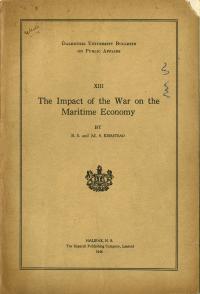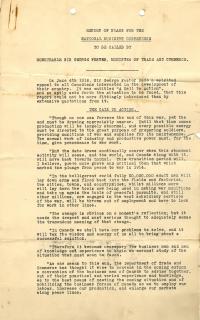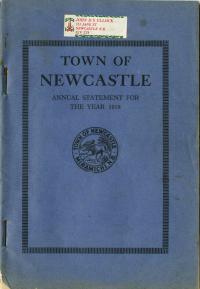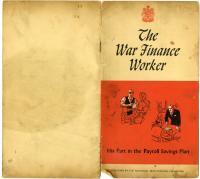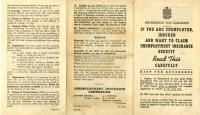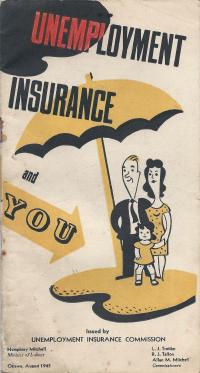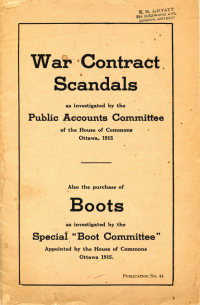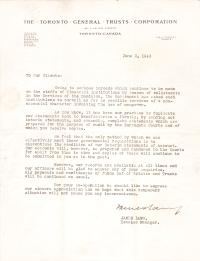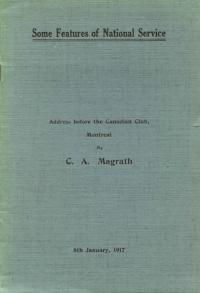Economy and Trade
Open for Business! - Herb's Electric Service
If you wanted to start a new business, or supplement your existing one, during the Second World War it was necessary to apply for a commercial license with the Wartime Prices and Trade Board. With this document, a commercial license for retail and services was granted to Herb's Electric Service in Coldwater, Ontario.
War and the Maritime Provinces
This study was commissioned in 1940 "to help people make up their minds about future policy." The Keirsteads apologized if the final product was "a bit patchy and dull", but asked for forbearance in view of the importance of the subject.
Plans for post-war Canada
By 1917, Sir George Foster, the Minister of Trade and Commerce, called for a National Business Conference to discuss the potential damage of the First World War to the Canadian economy, and the steps that might be taken to combat that damage.
Newcastle’s Financials 1918
The annual statement of the town of Newcastle, New Brunswick, from the year 1918 details how the town’s money was disbursed in the final year of the First World War - including over $7000 invested in Victory Loan bonds.
The War Finance Worker
The National War Finance Committee published this guide for finance workers during the Second World War to provide them with "the information necessary to the effective performance of his duties" in the national program of saving and lending. This program was created by the Government of Canada and directed by the National War Finance Committee.
Unemployment Insurance Commission Benefits Sheet
An informative booklet that covers the basics on how to apply for unemployment insurance, a new form of social welfare necessary to address some of the new realities of Canadian society following the end of the Second World War. This informative sheet mentions the active service time that could count towards the unemployment benefits time frame for application.
What if I lose my job?
The Second World War brought many changes to Canada, including the advent of a program of unemployment insurance. This booklet explained what was, at the time, a revolutionary system of social welfare.
War Contract Scandals
This collection of War Contract Scandals, investigated by the Public Accounts Committee, was released by the Liberal party to demonstrate the government's misuse of thousands of dollars, on such wastes as horses unfit for service, overpriced drugs, poor-quality binoculars, submarines rejected as unfit by other governments, and defective Shield-Shovels. Also included are the results of investigations by the special Boot Committee.
Wartime cutbacks
During the Second World War, the demands of the wartime economy meant that non-essential tasks - like the issuance of certain financial statements - had to be curtailed.
Serving the wartime economy
Charles McGrath was in charge of Canada's fuel supply during the First World War, and in this speech he discussed various ways in which Canadians could serve the war economy.


